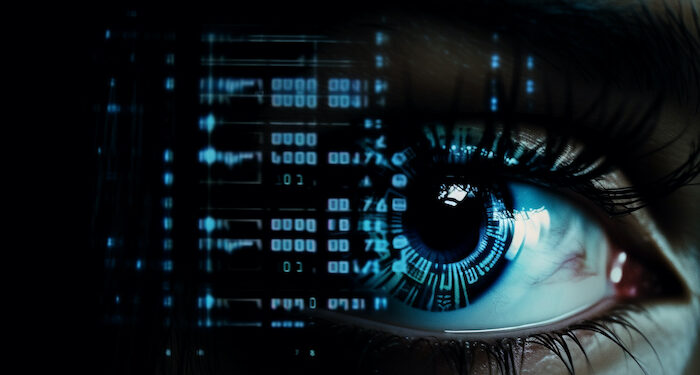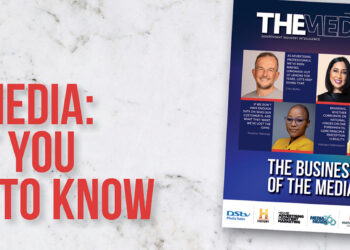In the buildup to Nigeria’s 2023 general elections, a viral video on TikTok appeared to show former US president Donald Trump endorsing Peter Obi, the Labour Party presidential candidate.
The clip appeared to capture Trump expressing support for Obi during a press conference in the White House Press Briefing Room. However, fact-checking by AFP revealed that the video was an AI-generated deepfake, manipulated from original footage of Trump’s Covid-19 press conference during his presidency.
In reality, Trump did not endorse Obi.
This case vividly demonstrates how misinformation and disinformation are rapidly spread in Nigerian society, especially when aided by technology. At Legit.ng, we have decided to tame artificial intelligence (AI) as a transformative tool for political journalism rather than ignore or be afraid of it.
The role of AI in editorial automation
In 2016, The Washington Post introduced its AI technology, Heliograph, which was crucial in supporting the newsroom’s efforts during the 2016 Rio Summer Olympics.
Inspired by our colleagues’ experience, Legit.ng began integrating AI by streamlining routine processes, such as proofreading and content editing. The priority task was to free up valuable time for our reporters so they could concentrate on more critical tasks, such as investigative reporting, in-depth political analysis and live coverage of significant stories that shape Nigeria’s political landscape.
Using Grammarly and ProWritingAid has fully justified itself to handle the preliminary editing work before it reaches human copy editors. During Nigeria’s 2023 general elections, our editorial team dedicated more time to coverage and policy analysis. This ensured our readers had access to detailed, fact-checked, and timely information on candidates and political parties.
Automating routine tasks with artificial intelligence boosted productivity at our editorial desk, resulting in a significant increase in article output. This surge in content contributed to a 107% rise in pageviews in February 2023, when Nigeria’s presidential election was conducted.
Since then, we have delegated all possible routine processes that did not require creative thinking to AI.
AI-driven fact-checking – the silent ally
But the most significant impact of AI on our editorial workflow has been in fact-checking. In a politically charged environment like Nigeria, where misinformation spreads like wildfire, AI helps us ensure that verified facts back every piece of politically sensitive content we publish.
AI has become our silent ally, providing real-time cross-referencing of data from multiple credible sources during political events. With the help of AI-driven fact-checking tools such as MyAiFactchecker and Dubawa.ai, we can quickly verify the accuracy of statements made by politicians, claims circulating on social media, and data related to governance or policy.
For sensitive topics, AI provides preliminary checks and flags dubious claims.
For image verification, we employ reverse image search tools such as TinEye and Google Images. These tools help us identify the origin of an image, its context, and whether it has been manipulated. For example, if an image claims to depict a recent event, we cross-reference it with older images to detect possible recycling or misrepresentation.
Verifying large datasets
During elections or in-depth investigations, we deal with vast datasets – polling data, financial records, or social media activity. AI assists in processing this data efficiently, highlighting anomalies and patterns.
However, every AI-generated insight undergoes human review to interpret the data accurately and ensure no critical detail is overlooked.
Our process is structured to allow human judgment at every stage. For instance, when AI flags a potential inaccuracy, the journalist responsible for the piece will investigate further, contact experts, and use their expertise to conclude.
This collaborative approach between AI and human journalists ensures a balanced and thorough fact-checking process.
We use a rigorous checklist that includes verifying names, places, and dates, cross-referencing facts, and confirming information with official sources. During elections or policy changes, we verify that the people we quote have direct knowledge of the events and aren’t simply relaying information they heard from others.
The irreplaceable role of human journalists
While AI has proven invaluable in the fact-checking process, it cannot replace the nuanced judgment and critical thinking skills that human journalists bring. AI can sift through vast datasets and cross-reference information. Still, it lacks the capacity for contextual analysis, empathy, and the intuitive understanding of complex socio-political dynamics that only experienced journalists possess.
For example, AI might identify a controversial statement but will struggle to gauge its potential impact or relevance within the broader socio-political context. Moreover, it cannot conduct interviews, engage with sources, or interpret subtle cues during interactions.
The human element remains crucial in investigative journalism, where ethical considerations, intuition, and storytelling skills are essential.
Combining traditional fact-checking with AI tools, we uphold high accuracy standards and minimise misinformation risks. Despite AI advances, human oversight remains indispensable in journalism.
While AI can support fact-checking and streamline workflows, experienced journalists must provide the final analysis, context interpretation, and ethical considerations.
Nurudeen Lawal is an AFP-certified journalist with over eight years of experience and holds a BA in Literature-in-English from OAU. He heads the Politics and Current Affairs Desk at Legit.ng and was named Political Desk Head of the Year (Nigeria Media Nite-Out Awards, 2023). He can be reached at lawal.nurudeen@corp.legit.ng or +2347057737768.














